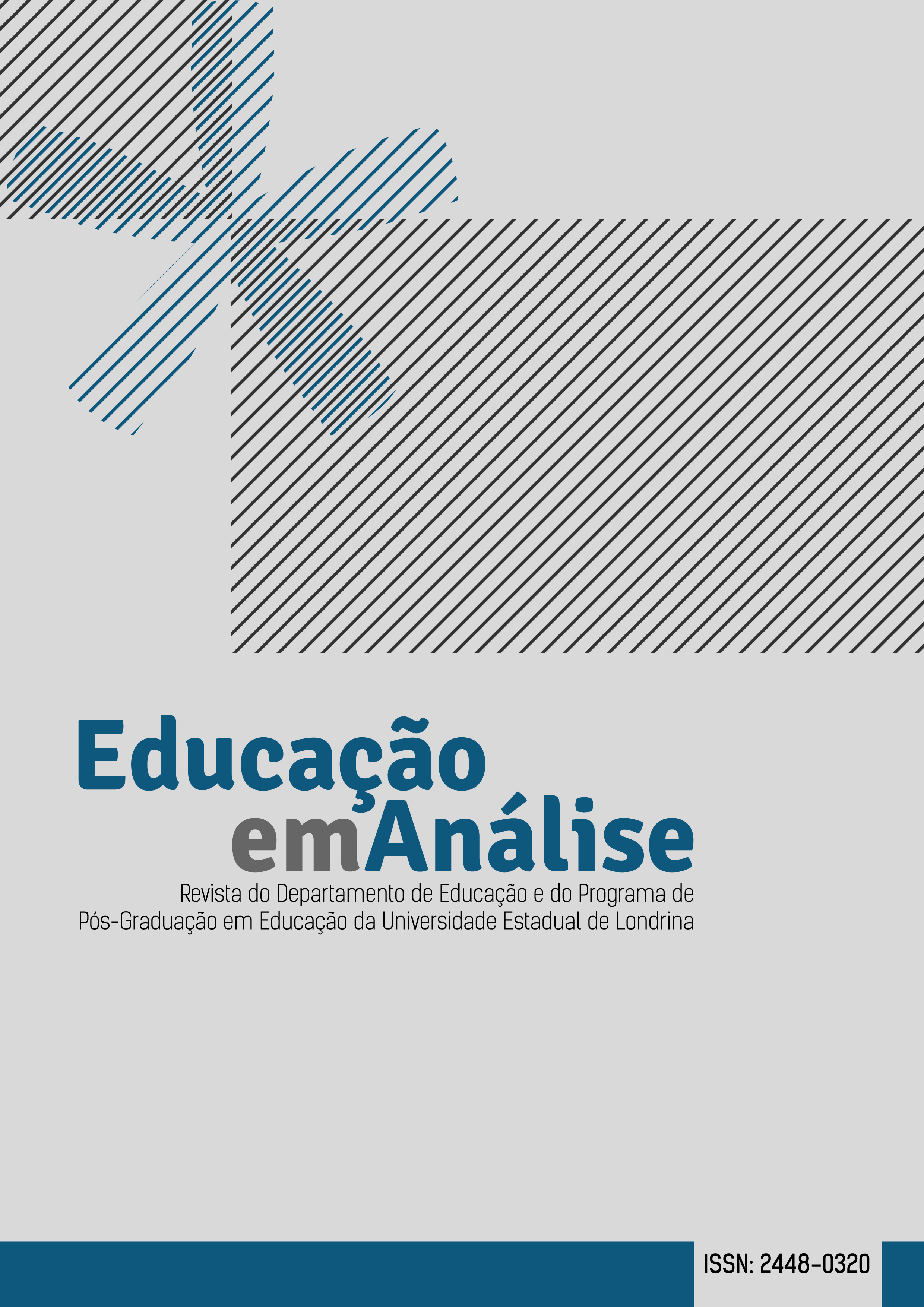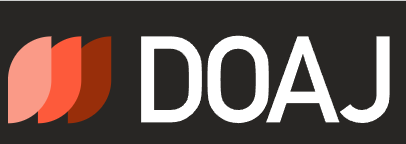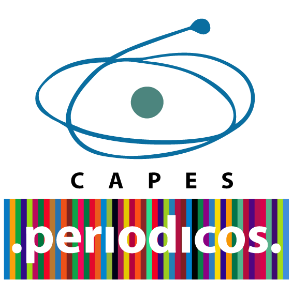Education in pandemic times: an analysis of Aula Paraná
DOI:
https://doi.org/10.5433/1984-7939.2022v7n1p222Keywords:
Critical Historical Pedagogy, Basic Education, Remote Classrooms, NeoliberalismAbstract
During the world coronavirus pandemic which we are facing, Brazilian governmental agencies have determined quarantine rules. Even though there are different rules in the country's states and cities, basic education schools from all the country have suspended their presential classroom activities. In this scenario, schools needed to look for ways of providing remote classes. In Parana State, the Education and Sports Department have launched a digital application, named Aula Parana, which includes video lessons broadcast through open TV and the internet, and provides online and printed activities. Based on this context, our objectives are to reflect about the education in pandemic times in Parana State, and to critically analyze a piece of news from the State Education and Sports Department, in which it announces the remote classes that would be implemented in the state basic education. In order to do that, we draw upon the Historical-Critical Pedagogy theoretical assumptions and the Critical Discourse Analysis methodological base. Referring to our analysis and theoretical assumptions, we point out the existence of a neoliberal discourse related to education and underlying the remote classes proposal, which understands education as a commodity, without considering issues of students' access and the effectiveness of the teaching and learning process.Downloads
References
GASPARIN, J. L. A construção dos conceitos científicos em sala de aula. Educação: visão crítica e perspectivas de mudança. Concórdia: Editora da Universidade do Contestado, v. 1, p. 1-25, 2007.
GASPARIN, J; PETENUCCI, M. Pedagogia histórico crítica: da teoria à prática no contexto escolar. Dia a dia Educação, Paraná, v. 2, p. 2289-8, 2014.
EISENBACH NETO, F. J.; CAMPOS, G. R. O impacto do neoliberalismo na educação brasileira. Anais do XIII Congresso Nacional de Educação, p. 10986-10999, 2017.
ENSINO A DISTÂNCIA EXCLUI MILHARES DE ALUNOS(AS) E NÃO TEM EFETIVIDADE. APP Sindicato, 6/maio/2020. Disponível em https://appsindicato.org.br/ensino-adistancia-exclui-milhares-de-alunosas-e-nao-tem-efetividade/. Acesso em 29 de maio de 2020.
FAIRCLOUGH, N. Introduction: critical language study. In: FAIRCLOUGH, N. Language and power. London: Longman, 1989. p. 1 - 16.
FAIRCLOUGH, N. Critical Discourse Analysis: the critical study of language. London and New York: Longman, 1995.
FAIRCLOUGH, N. Global capitalism and critical awareness of language. Language Awareness. v.8, n.2, 1999. p. 71 - 83. Disponível em: http://eprints.lancs.ac.uk/8546/1/la0080071.pdf>. Acesso em 18 de julho de 2012.
FAIRCLOUGH, N. Analysing discouse: textual analysis for social research. London and New York: Routledge, 2003. p. 21 - 38.
KUENZER, A. Z. Exclusão includente e inclusão excludente: a nova forma de dualidade estrutural que objetiva as novas relações entre educação e trabalho. Capitalismo, trabalho e educação, v. 3, p. 77-96, 2002.
MALANCHEN, J. O conceito de cultura: definição e compreensão a partir da teoria marxista. In: JORNADA DO HISTEDBR. A PEDAGOGIA HISTÓRICO-CRÍTICA, A EDUCAÇÃO BRASILEIRA E OS DESAFIOS DE SUA INSTITUCIONALIZAÇÃO, 11.,2013, Cascavel, PR. Anais [...]. Cascavel [...], 2013.
MARRACH, S; et al. Neoliberalismo e educação. Infância, Educação e Neoliberalismo. São Paulo: Cortez, p. 42-56, 1996.
MOTTA-ROTH, D.; LOVATO, C. S. O poder hegemônico da ciência no discurso de popularização científica. Calidoscópio, v. 9, n. 3, p. 251-268, set./dez. 2011. Disponível em http://revistas.unisinos.br/index.php/calidoscopio/article/viewFile/1720/559. Acesso em 23 de maio de 2020.
PARANÁ. Secretária da Educação e do Esporte. Estudantes da rede estadual já podem baixar aplicativo para assistir às aulas EaD. Núcleo Regional de Educação de Paranavaí, 2020. Disponível em: http://www.nre.seed.pr.gov.br/modules/noticias/article.php?storyid=21115. Acesso em: 29 maio de 2020.
RIBEIRO, J. M.; SAITO, R. S.; CRISTOVÃO, V. L. L.; NASCIMENTO, E. L. Levantamento dos elementos ensináveis no gênero notícia impressa em LM e online em LE. In: CRISTOVÃO, V. L. L. (Org.). Modelos didáticos de gênero: uma abordagem para o ensino de língua estrangeira. Londrina: UEL, 2007. p. 199-209.
SANTOS, B. de S. A cruel pedagogia do vírus. Coimbra: Edições Almedina, 2020.
SAVIANI, D. O paradoxo da educação escolar: análise crítica das expectativas contraditórias depositadas na escola. Cadernos de Pesquisa: Pensamento Educacional, Curitiba, v. 5, n. 10, p. 13-28, 2010.
SAVIANI, D. A pedagogia histórico-crítica, as lutas de classe e a educação escolar. Germinal: Marxismo e educação em debate, v. 5, n. 2, p. 25-46, 2013.
SAVIANI, D. Sobre a natureza e especificidade da educação. Germinal: marxismo e educação em debate, v. 7, n. 1, p. 286-293, 2015.
SFORNI, M. Aprendizagem conceitual e organização do ensino: contribuições da teoria da atividade. Araraquara: JM Editora, 2004.
Downloads
Published
How to Cite
Issue
Section
License
Copyright (c) 2022 Educação em Análise

This work is licensed under a Creative Commons Attribution 4.0 International License.
Os artigos publicados na Revista Educação em Análise estão sob a Licença Creative Commons Atribuição 4.0 Internacional, garantindo Acesso Aberto. Deste modo, os autores mantêm os direitos autorais de seus trabalhos e, em caso de republicação, solicita-se que indiquem a primeira publicação nesta revista. Essa licença permite que qualquer pessoa leia, baixe, copie e compartilhe o conteúdo, desde que a devida citação seja feita. Além disso, autoriza a redistribuição, adaptação e criação de obras derivadas em qualquer formato ou meio, incluindo uso comercial, desde que a atribuição à revista seja mantida.
A revista se reserva o direito de efetuar, nos originais, alterações de ordem normativa, ortográfica e gramatical, com vistas a manter o padrão culto da língua e a credibilidade do veículo. Respeitará, no entanto, o estilo de escrever dos autores. Alterações, correções ou sugestões de ordem conceitual serão encaminhadas aos autores, quando necessário.
As opiniões emitidas pelos autores dos artigos são de sua exclusiva responsabilidade.
























